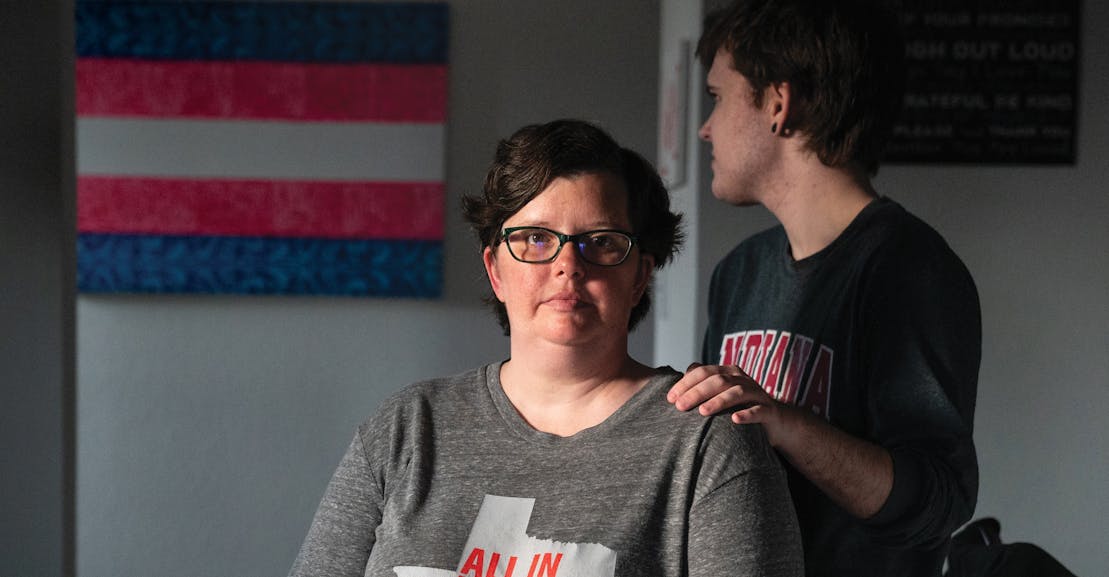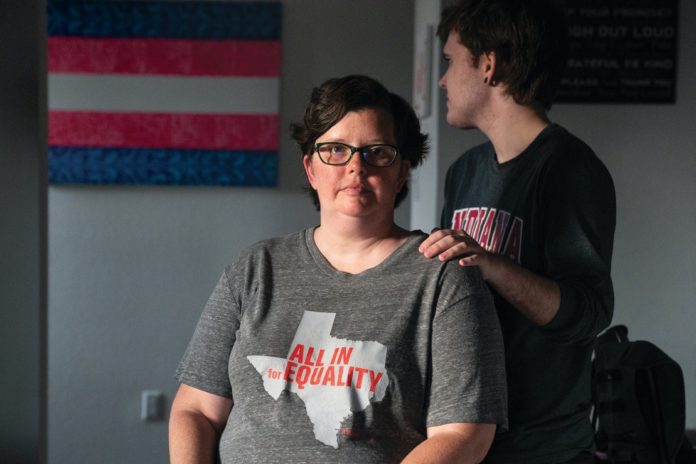
Why now, though, especially when it appears to many progressives that support for trans people is on the rise, within the Biden administration and elsewhere? This year is the first full legislative session after the U.S. Supreme Court’s Bostock decision on anti-LGBTQ discrimination in employment, which affirmed that freedom from discrimination based on sexual orientation and gender identity should be understood as part of the broader category of discrimination that is prohibited on the basis of sex. Alliance Defending Freedom, the Christian law and policy shop that, according to its mission statement, “exists to keep the doors open for the Gospel” by promoting “marriage and family,” lost in that decision, a blow made all the more crushing by the fact that the majority opinion was written by Justice Neil Gorsuch, whose Supreme Court appointment ADF saw as key to its success. To take down Bostock, and likely just as much to shore up support from donors, ADF and the GOP would need a new strategy.
Idaho Republicans and the ADF rolled out this ploy—a sexualized moral panic about trans kids, rooted in strategic misinformation—in 2020, with one of the first anti-trans sports bans adopted into law. Its sponsor, Republican state Representative Barbara Ehardt, acknowledged that the Alliance Defending Freedom had helped draft it, and that the bill had inspired others, according to TransLash Media, a nonprofit that reports on trans issues. When the law was challenged in court, the state—very unusually—ceded its time in closing arguments to an ADF attorney. Copycat bills appeared across the country, pledging to protect “fairness” in women’s and girls’ sports.
“Protecting girls in sports” is a variation on an older theme, one with some specific Texas roots, too. In 2015, voters in Houston were asked to consider a broad nondiscrimination ordinance, known as HERO, previously passed and approved by the city council. Opponents of the ordinance produced scare ads, deliberately misinforming voters that the ordinance would allow “men in women’s bathrooms.” Houston Unites, which advocated for keeping HERO, failed to combat this myth, instead releasing a commercial that “featured a panoply of women as they played, baked, and made crafts with their children, all while explaining that the antidiscrimination law was an essential means of protecting them and their families,” as Marie-Amélie George described in a Northwestern University Law Review article (the ad is no longer online). “As wives, mothers, grandmothers, nothing’s more important than keeping our children safe,” the ad went on, pledging that HERO would not “allow sexual predators to enter women’s restrooms.” While the initial polling was favorable, HERO lost at the ballot box by 22 points, a “political train wreck,” observed Monica Roberts, a prominent Black trans advocate and blogger. With HERO, the right wing learned it could use the “protecting women and girls” story to win. As Roberts warned, such tactics would be “coming to a civil rights fight near you and y’all better be prepared from the outset to come out swinging against them.”
The loss in Houston was enormous and felt across the country, a blow made all the more stinging for how soon it followed the Supreme Court’s Obergefell decision, which upheld marriage equality. “The bathroom message had, in fact, unraveled the entire national LGBT rights apparatus,” BuzzFeed’s Dominic Holden
observed. A postmortem analysis commissioned by one of those groups, Freedom for All Americans, concluded that any future effort needed to, as Holden put it, “build widespread familiarity with trans people in advance, and, when it’s time for the campaign, trans people must lead the way.”








